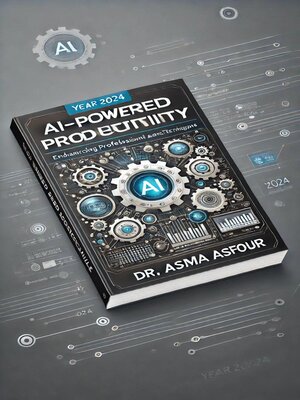
Sign up to save your library
With an OverDrive account, you can save your favorite libraries for at-a-glance information about availability. Find out more about OverDrive accounts.
Find this title in Libby, the library reading app by OverDrive.



Search for a digital library with this title
Title found at these libraries:
| Library Name | Distance |
|---|---|
| Loading... |
This book, "AI-Powered Productivity," aims to provide a guide to understanding, utilizing AI and generative tools in various professional settings. The primary purpose of this book is to offer readers a deep dive into the concepts, tools, and practices that define the current AI landscape. From foundational principles to advanced applications, this book is structured to cater to both beginners and professionals looking to enhance their
knowledge and skills in AI. This book is divided into nine chapters, each focusing on a specific aspect of AI and its practical
applications: Chapter 1 introduces the basic concepts of AI, its impact on various sectors, and key factors driving its rapid advancement, along with an overview of generative AI tools. Chapter 2 delves into large language models like ChatGPT, Google Gemini, Claude, Microsoft's Turing NLG, and Facebook's BlenderBot, exploring their integration with multimodal technologies and their effects on professional productivity. Chapter 3 offers a practical guide to mastering LLM prompting and customization, including tutorials on crafting effective prompts and advanced techniques, as well as real-world examples of AI applications. Chapter 4 examines how AI can enhance individual productivity, focusing on professional and personal benefits, ethical use, and future trends. Chapter 5 addresses data-driven decisionmaking, covering data analysis techniques, AI in trend identification, consumer behavior analysis, strategic planning, and product development. Chapter 6 discusses strategic and ethical considerations of AI, including AI feasibility, tool selection, multimodal workflows, and best practices for ethical AI development and deployment. Chapter 7 highlights the role of AI in transforming training and professional development, covering structured training programs, continuous learning initiatives, and fostering a culture of innovation and experimentation. Chapter 8 provides a guide to successfully implementing AI in organizations, discussing team composition, collaborative approaches, iterative development processes, and strategic alignment for AI initiatives. Finally, Chapter 9 looks ahead to the future of work, preparing readers for the AI revolution by addressing training and education, career paths, common fears, and future trends in the workforce







